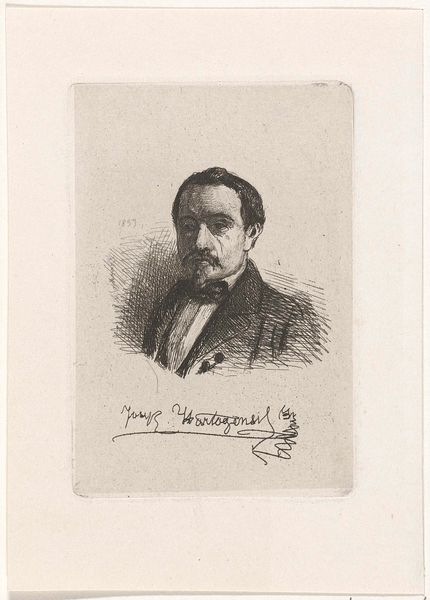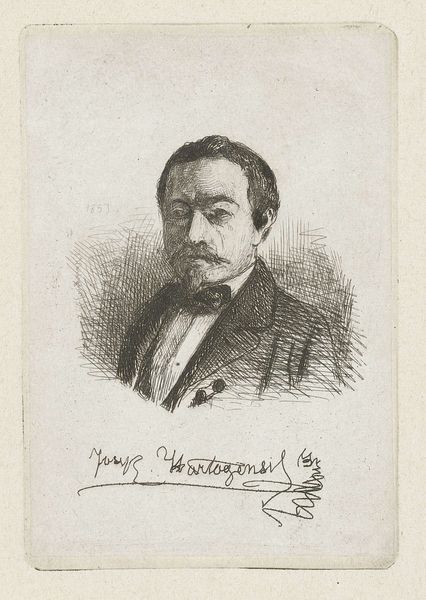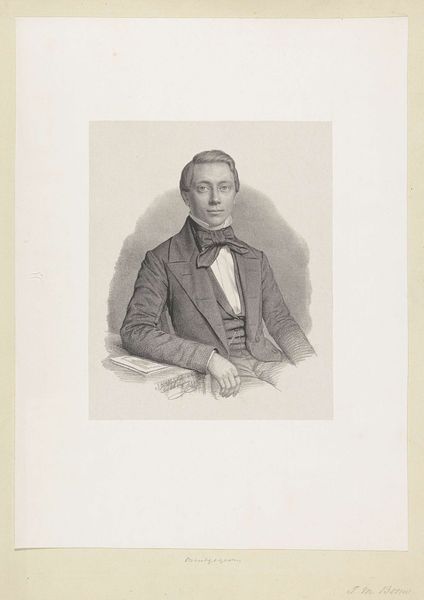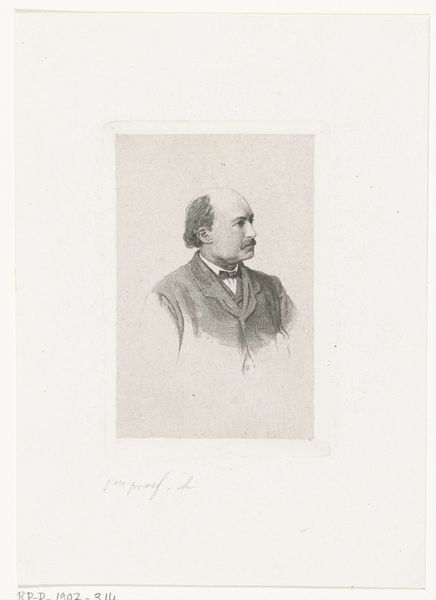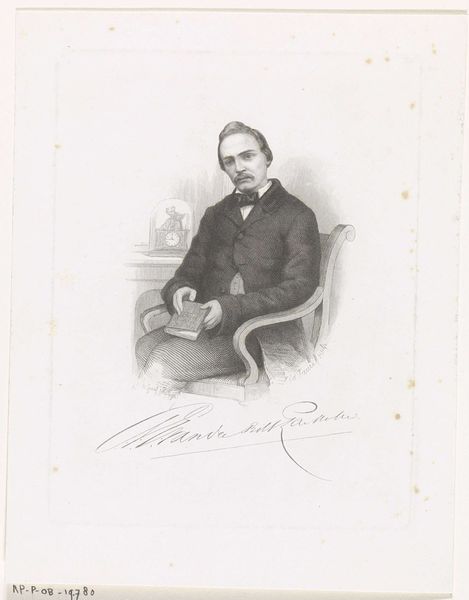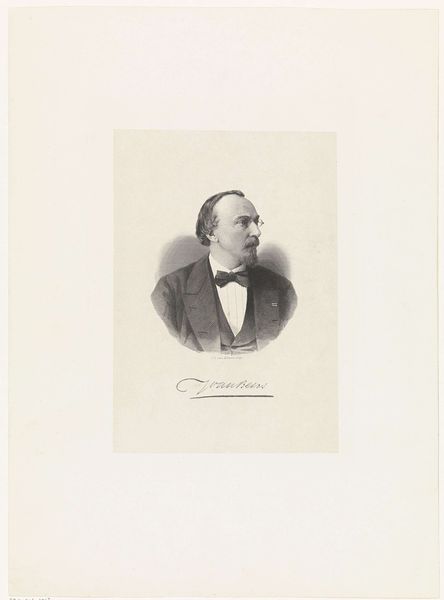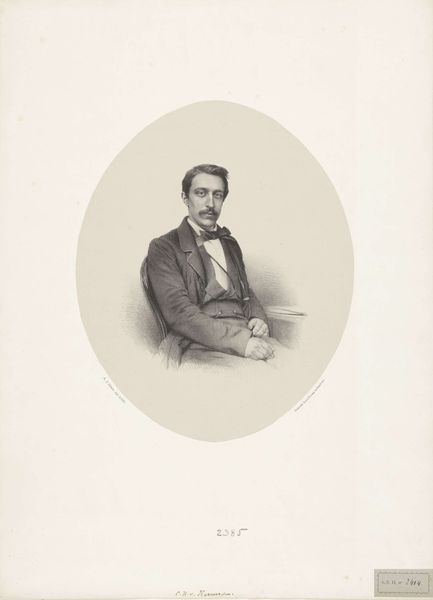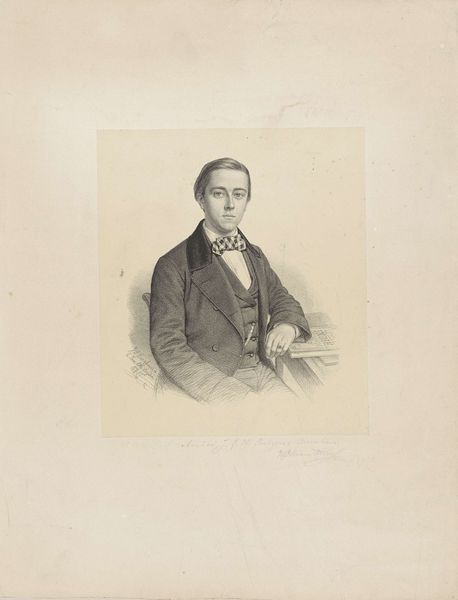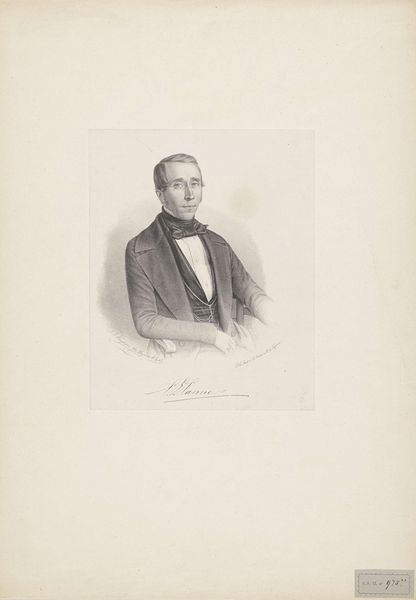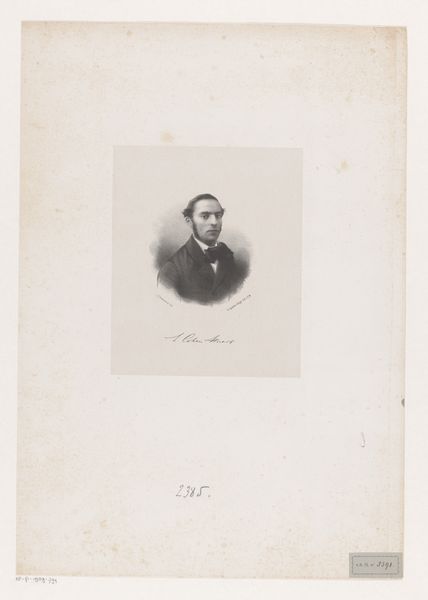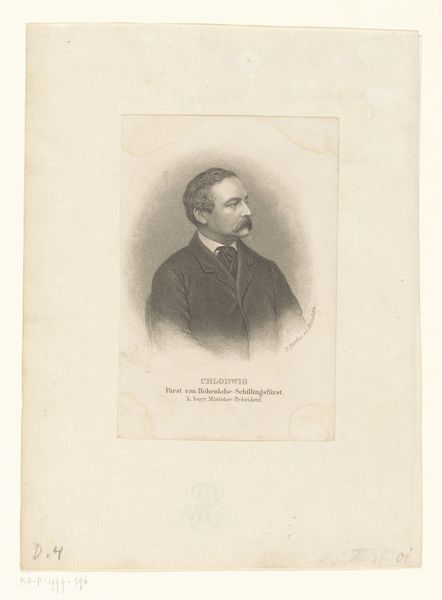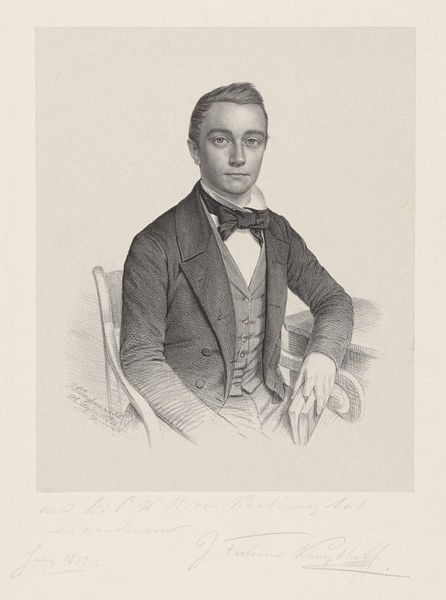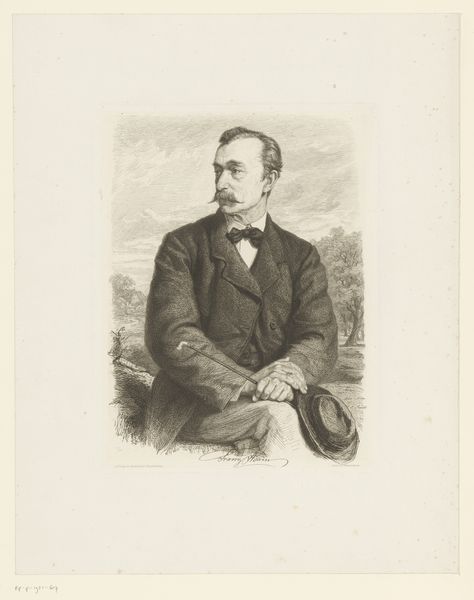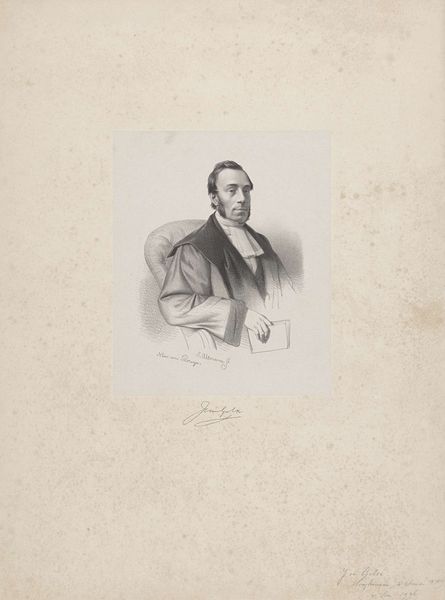
print, engraving
#
portrait
#
16_19th-century
#
self-portrait
# print
#
old engraving style
#
engraving
#
realism
Dimensions: height 91 mm, width 63 mm
Copyright: Rijks Museum: Open Domain
Joseph Hartogensis made this self-portrait sometime in the mid-19th century, using etching. It is a printmaking technique where lines are incised into a metal plate, and then filled with ink to create an image. The material qualities of the metal, and the sharp tools used to carve it, allow for extremely fine detail and crisp lines. The technique requires considerable skill and control, as the artist must carefully gauge the depth and pressure of each line to create the desired effect. Notice how Hartogensis employs cross-hatching to build up tone and shadow, giving the image a sense of depth and volume. It is important to remember that printmaking was a key technology of its day. While the wealthy could commission painted portraits, etchings allowed for images to be reproduced and disseminated more widely, contributing to a growing visual culture and economy. This self-portrait is not just an image of the artist, but also an artifact of a rapidly changing society.
Comments
No comments
Be the first to comment and join the conversation on the ultimate creative platform.
